- Home
- Brenda Novak
Dear Maggie Page 2
Dear Maggie Read online
Page 2
“What is it?”
“An advertisement for a dating service.”
Darla cocked an eyebrow at her, looking far from impressed. “What do I think? I think you’re nuts. Anyone as attractive as you shouldn’t have to pay to get a date.”
If only Darla understood how painful that whole process was for her—getting out and meeting someone, all the little rituals and deceptions…“I kind of like the idea of the questionnaire. You get to skip the first part of dating, where everyone’s kind of checking other people out.” She flattened the paper against the partition. “Look, it’s right here. You answer these questions so the service can match you up with someone who’s compatible.”
“And they use a crystal ball to decide this? Or do they simply include a ‘no weirdos allowed’ clause in their contract?”
“Come on, Darla. They obviously can’t protect their clients from every possibility, but if Tim and I had filled out one of these we would have known right from the start that we weren’t meant for each other. He didn’t tell me until after we were married that he didn’t want any kids.”
Maggie didn’t add that she’d been so happy to find a man to love her that she hadn’t pressed him on anything, and he simply assumed she’d accommodate his plan for their lives. In the end, her inability to go along with his refusal to have children had come as a big surprise to both of them. “It took me several years to change his mind, and the result was disastrous. He resented Zach from day one,” she said.
“But you could meet someone pretty scary through an outfit like this,” Darla complained. “You could wind up dating a rapist or a murderer.”
“We’d have a greater chance of meeting someone like that at a club. This route takes patience, something rapists and murderers typically don’t possess.”
Darla scowled. “Tell the woman in the Dumpster that. I’ll bet some murderers show incredible patience. Isn’t that what ‘premeditated’ is all about?”
“Come on. We could be going out with guys who have the same level of education, the same goals, the same marital status—”
“Pathetic bordering on desperate? Why would I want to meet someone like that?”
Maggie considered the questionnaire again. “We could always tick the ‘I make over $100,000’ box under annual income and insist on being matched up with someone who makes that, too.”
“Now you’re talking,” Darla said.
NICK STRETCHED OUT in his chair, crossed his legs at the ankle and closed his eyes. He wanted to photograph Maggie Russell. He wanted to dress her in a white sundress that fell off the shoulder on one side and see her through his lens, laughing and barefoot, her thick auburn hair blowing in the wind, her eyes slanting up at him.
It would have to be evening, he decided. That was when the light would be perfect and he’d be able to capture her nearly flawless skin in a warm, gentle glow. The dusting of freckles across her nose, and her mouth, slightly larger than most women’s ideal, added to the earthy beauty of her face. The sun behind her would provide just enough of a shadow to hint at the shape of her body, naked beneath the cotton dress. And he’d shoot her on a beach, where surf the color of her eyes crested in the background and shimmers of heat rose from the sand beneath her feet.
Somehow Maggie Russell managed to combine innocence and vulnerability with an incredibly high dose of sex appeal. The effect was very intriguing. And he could capture the essence of it on film; he knew he could. Someday he’d put her photograph on the cover of the coffee-table book he hoped to publish—when he had the time to pursue his love of photography more seriously.
Right now he had to get back to work. The FBI’s Ogden field office hadn’t sent him to Sacramento to pose as one of the Tribune’s staff photographers so he could waste his time lusting over the beautiful female reporter he was here to protect. The owner of the paper—someone Nick had met just once—was the only one the bureau had clued in to his true identity and purpose. Besides heading the small task force assembled by the Sacramento P.D., Nick had the added burden of performing at the Trib in a manner convincing enough to fool the photo editor who was his boss, his co-workers and everyone else, which meant he had to make the most of every minute.
Sitting up, he reached inside his desk for the file that contained the coroner’s report on the victim found in the Dumpster almost a week ago. He’d studied it exhaustively, but every time he read it, he hoped he’d find something he’d missed before. Something that would illuminate the series of brutal murders that had started along the eastern seaboard almost four months ago, then traveled to Missouri and Colorado and finally the west coast.
The victim’s name was Sarah Ritter. Her death brought the body count to seven. A Caucasian woman in her mid-thirties, she was attractive in a professional, polished way and held a master’s degree in English from the University of California, Davis. She’d taught second grade at an elementary school in the suburbs, had a three-bedroom, two-bath tract house, two children, a dog, and an insurance salesman as a husband.
Unfortunately, she’d also been brutally attacked, raped and stabbed, her body tossed in a Dumpster. How she’d gotten from her house, nearly twenty miles away, to Midtown, was a mystery.
Nick pinched the bridge of his nose. Why her? The other six victims were younger, including the Seattle reporter. Three were single, one had a live-in lover, the last was separated from her husband. All were in their mid-twenties. What had specifically attracted the murderer to these women? What put them at risk?
It certainly wasn’t accessibility. These were difficult murders to commit. The victims hadn’t been living on the street. They weren’t drug addicts or prostitutes. They had homes and jobs, and some had families. Beyond that, they had no obvious connection to each other—they didn’t belong to the same book club, graduate from the same school, attend college together or correspond for private or professional reasons. As far as Nick could determine, they didn’t know each other at all. The only thing they had in common was the fact that they’d become victims of the same murderer.
Random targets, except Lola Fillmore, the reporter in Seattle. That had been personal.
Nick shuffled through another file and came up with the letter that had brought him to Sacramento in the first place. Received at FBI headquarters almost a month ago, it had been printed on regular copy paper by a standard Hewlett-Packard DeskJet. Nothing of particular note there, at least nothing that was going to help him. But the letter itself shed some light on the psychology of the killer.
April 13th
Seattle, Washington
“Dear Sirs, or should I say Madams? Welcome to the investigation. For all the challenge local police have given me, I assume most forces are now run by a bunch of women, but be that as it may, I’ve decided to let you join the fun. I’ve tired of Seattle and all its blasted rain—makes working out of doors rather miserable, if you know what I mean—and have decided to move to California. But where? Los Angeles is entirely too big. With all the different jurisdictions, etc., it would be too easy for local law enforcement to bungle the investigation, and it’s certainly no fun outwitting one’s opponent so easily. I considered San Francisco, but no one would much care if I murdered women there, now, would they? They have no use for the fairer sex, anyway. So I think Sacramento is the place. River City, isn’t that what they call it? Well, we shall soon see what the river turns up.
Catch me if you can…
Dr. Dan
Dr. Dan was famous for his letters. He sent them to local law enforcement, taunting their failed attempts to catch him. He sent them to the FBI, bragging about his superior intellect. And when the police and FBI kept them from the press, he started writing to newspapers, hoping for headlines. He’d sent two letters to Lola Fillmore at the Seattle Independent, right before he killed her.
Fortunately, as far as Nick could tell, no one at the Sacramento Tribune had received such mail. Yet. After what had happened in Seattle, his instincts told him it would come, and he guessed
Maggie Russell would be the recipient when it did. The Trib was the major newspaper in town, and she was the only female cop reporter on staff.
He shoved the letter back into the file and went for the profiler’s report instead. Ms. Lalee Wong, one of the FBI’s best, had analyzed the letter, along with all the others, and deemed it genuine. But she hadn’t come up with as much as Nick would have liked. She said the perp was a man, probably fairly young, most likely short and balding, with sexual hang-ups to spare.
No surprises there.
Dr. Dan’s utter contempt for women, evident in the letters but even more in the violent and cruel nature of his killing, fueled his murderous rage. Perhaps he’d been abused by his mother or a strong maternal figure in his youth. Perhaps his wife had left him.
Or maybe he’d killed her, Nick thought. There could be another body out there. Maybe more than one. Most serial killers didn’t go from zero to sixty in a matter of days. They started slowly, usually with animals, and built up from there.
Skipping further down the report, Nick skimmed the final paragraphs. Wong doubted Dr. Dan was truly a doctor, but she hadn’t ruled out Daniel as the man’s first name. She felt certain he was educated, most likely to the college level, and that he was Caucasian, possibly British, judging by his formal and rather stilted use of language. Going by the normal statistics on such violent criminals, as well as the tone of his writing, she guessed he was in the age range of twenty-eight to thirty-five.
The last sentence of her report Nick knew by heart because he’d come to the same conclusion himself. Considering how quickly and efficiently Dr. Dan removes certain internal organs, he probably has some working knowledge of anatomy. If he’s not a doctor, he could be a nurse, an EMT, a medical student, a veterinarian or a butcher.
“He is definitely a butcher,” Nick growled. Dr. Dan seemed to think of himself as some sort of modern-day Jack the Ripper, but Nick planned to put an end to it. He was going to find this bastard and nail him to the wall if it was the last thing he did. No one traveled across America killing wives and mothers and got away with it. Not on his watch.
He heard Maggie’s laugh and looked up to see her standing at the water cooler, talking to another photographer. She was very attractive in her gray tailored business suit and crisp white cotton shirt. She had the most kissable lips he’d ever seen, the most incredible bedroom eyes….
But none of that mattered. He was a federal agent. His interest in her was strictly professional. Even if she never became one of Dr. Dan’s targets, she could dig up something that might prove helpful to his investigation. Actually, chances were good she’d do exactly that. She tracked all calls coming in after ten o’clock.
And Dr. Dan always struck at night.
CHAPTER TWO
WHAT WAS GOING ON? Lowell Atkinson, the county coroner, had always been helpful to Maggie before. She’d sent his wife Mary Ann flowers when she’d delivered her last baby. She’d gotten Zach and the Atkinsons’ Katie together for a picnic last summer. She could hardly believe he’d treat her so impersonally now. When she’d arrived at his office to request a copy of the coroner’s report on the Dumpster murder, he’d claimed he hadn’t finished it, said he’d call her when he had. But when she’d pressed him for a verbal explanation of his findings, he’d told her he hadn’t even done the autopsy yet.
Bull. Maggie knew better. The police were under a lot of pressure to solve such a high-profile case. They wouldn’t let Lowell store the victim in his morgue for over a week. They’d probably had his report in their hands the following day, but her police contacts weren’t talking, either. And to top it all off, Ben, her editor, was riding her hard, expecting a follow-up to the story they’d run last week—a follow-up she couldn’t conjure from thin air. She needed answers, and she needed them fast.
Frustrated, she set her purse on the desk and slumped into her seat, wondering where to go from here. Detectives Hurley and Mendez had the case. She doubted they’d talk to her when no one else on the force would, but it was worth a chance.
She fished her police roster out of her drawer and dialed, but Lopez, the sergeant at the front desk, said they were both out. She considered leaving a message, decided against it and hung up, hoping to catch them later. In the meantime, she’d get organized.
She was clearing off her desk when she noticed a sticky note from Darla attached to the partition directly in front of her, next to her photographs of Zach.
“Before we join a dating service, let’s try some online sites,” it said. “They’re free.”
Maggie had never actually gone into a singles chat room before. She’d surfed the Web a lot and grown compulsive about e-mail, but she wasn’t sure online dating would work. How could she and Darla meet men via the Internet who lived close enough for dating purposes? What if she found a man who seemed interesting and he lived in Florida, for Pete’s sake? A pen pal wouldn’t exactly fill the gap in her life.
Still, she liked the idea of socializing from behind the safety of her computer screen while Zach played at her feet. No baby-sitter needed. No fuss. No awkward moments. No fears or worries if she stayed in control of the situation. Visiting chat rooms might help pass the long, lonely evenings before she went to work. And it certainly wouldn’t hurt that she could subsidize the fun with some frozen yogurt from her own freezer.
“What do you think?” Darla asked, coming into her cubicle before Maggie had a chance to make a firm decision.
“What about the risks? We could end up attracting weirdos. Cyber nuts,” she said, determined to consider every angle.
Darla frowned. “That might be true. I’ve heard some scary stories. We’ll just have to be careful.”
“How will we know when it’s safe to reveal our name and number?”
“We’ll get to know the guy first.”
“And how will we determine when we ‘know’ him?”
“We’ll just have to play it by ear, I guess.”
Maggie rested her head in one hand and regarded Darla skeptically. “You’re going to get me in trouble, aren’t you? I can tell already.”
Darla smiled, sorted through Maggie’s side drawer and helped herself to a piece of gum from the pack she kept there. “I think it’s time to mix things up around here. I think it’s time for a little trouble,” she said and headed back to her own desk.
“What are friends for?” Maggie muttered, but Darla couldn’t hear her. She was gone for a moment before popping back in to hand her a new sticky note.
“Here. This is where we’ll go. Log on tonight at eight. I’ll meet you there.”
Maggie read Darla’s loopy handwriting directing her to a chat room called Twenties Love. “You might be only twenty-six, but I just turned thirty,” she protested. “I have no business in Twenties Love.”
Darla shrugged. “Okay. Older men are fine by me. We’ll go to Thirties Love, then.”
“I don’t know.” Maggie rubbed her pencil between her hands until the friction warmed her palms. “I’m still leaning toward the dating service. Their questionnaire asks what I’m looking for in appearance.” She grinned. “I was planning on checking the box ‘moderately attractive’ so the guy wouldn’t hold my red hair against me.”
“Your hair isn’t red. It’s auburn, and it’s beautiful.”
“No one likes red hair.”
“Men are crazy about red hair.”
“Tim was paranoid our baby would have red hair.”
“Tim was always trying to hurt you.”
Her ex had definitely succeeded there. But he’d toughened her a lot, too, and Tim was old news, anyway.
Maggie pulled the dating service’s questionnaire out of her desk. “Well, I was also planning to check the box that said I was moving in six months, you know, as sort of a safety precaution.”
Darla propped her hands on her hips. “So, what you’re saying is, you’ve already decided to lie on almost every question.”
“Not every question. They do
n’t ask about my weight.”
“Like you’d need to lie about your weight.” She shook her head. “Okay, what would you put under ‘athletic interest’? Very active, active, occasionally active or does not matter?”
“Very active, of course.”
“You call grocery shopping once a week very active?”
“No, but everyone knows an active woman is more appealing than an inactive one.”
“You see, Maggie? Doesn’t that tell you anything?”
“Yeah, that I’m not stupid enough to put ‘inactive.’”
“No. That other people are probably doing the same thing you are, giving answers they think the opposite sex wants to hear, instead of the truth.”
Maggie chewed her lip. Darla had a point. What if men were putting “advanced degree” when, in reality, the only thing they’d ever graduated from was juvenile hall to the state pen?
Grabbing the note with the chat room information on it, Maggie scratched out Twenties Love and wrote a big 3-0, then tacked it up on her wall so she wouldn’t forget. “Okay. We go with the Web. It’s no less safe, and it’s free, right?”
“Right.” Darla tossed her hair over her shoulder. “See you in virtual reality.”
HOW WOULD HE KNOW when she logged on?
Nick sat in front of his laptop computer, his dog’s muzzle on his leg, reading the comments of people already in the chat room and hoping he’d be able to recognize Maggie’s “voice” when he heard it. He’d logged on around seven-thirty, wanting to be there when she arrived, figuring that the timing of her appearance would somehow tip him off if nothing in her screen name or comments did. But it was after eight now, and he doubted she was anyone he’d met so far.
Was he in the wrong place? He glanced down at the note he’d snatched from Maggie’s cubicle. He had the right server.
Twenties Love had been covered by a numerical Thirty, but after scanning all the chat rooms, he decided it could only mean Thirties Love. So where were they?

 Falling For You
Falling For You A California Christmas
A California Christmas When I Found You
When I Found You Sanctuary
Sanctuary Home for the Holidays (Silver Springs)
Home for the Holidays (Silver Springs) One Perfect Summer
One Perfect Summer Christmas in Silver Springs
Christmas in Silver Springs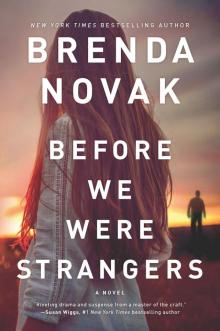 Before We Were Strangers
Before We Were Strangers Coulda Been a Cowboy
Coulda Been a Cowboy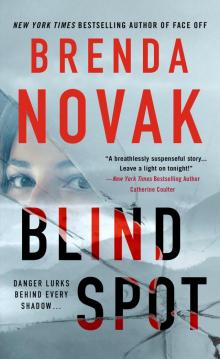 Blind Spot
Blind Spot That One Night
That One Night The Perfect Murder
The Perfect Murder Falling For You (Dundee Idaho)
Falling For You (Dundee Idaho) In Close
In Close Home for the Holidays
Home for the Holidays A Dundee Christmas
A Dundee Christmas The Perfect Couple
The Perfect Couple On a Snowy Christmas
On a Snowy Christmas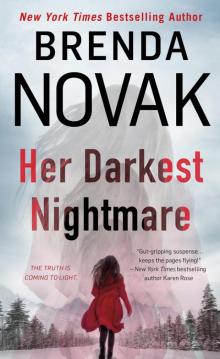 Her Darkest Nightmare
Her Darkest Nightmare When We Touch
When We Touch A Winter Wedding (Whiskey Creek)
A Winter Wedding (Whiskey Creek) The Perfect Liar
The Perfect Liar Dead Silence
Dead Silence Baby Business
Baby Business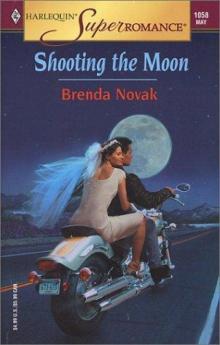 Shooting the Moon
Shooting the Moon A Home of Her Own
A Home of Her Own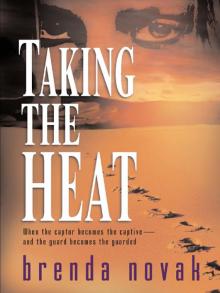 Taking the Heat
Taking the Heat Of Noble Birth
Of Noble Birth Every Waking Moment
Every Waking Moment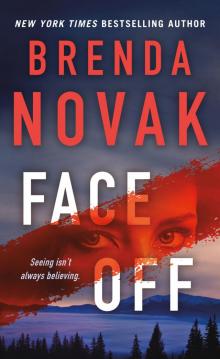 Face Off
Face Off Expectations
Expectations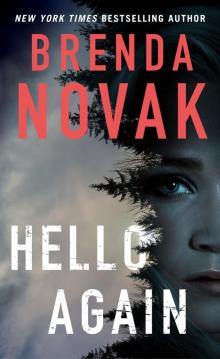 Hello Again
Hello Again When Snow Falls
When Snow Falls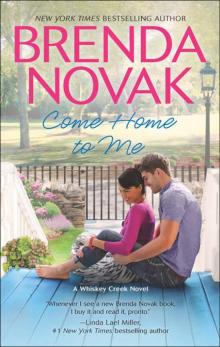 Come Home to Me
Come Home to Me Be Mine at Christmas
Be Mine at Christmas The Secrets She Kept
The Secrets She Kept In Seconds
In Seconds No One but You--A Novel
No One but You--A Novel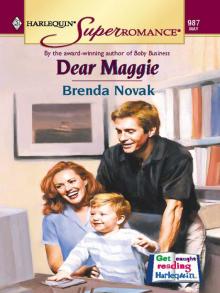 Dear Maggie
Dear Maggie Hanover House: Kickoff to the Hanover House Chronicles
Hanover House: Kickoff to the Hanover House Chronicles When Summer Comes
When Summer Comes Discovering You
Discovering You Inside b-1
Inside b-1 Body Heat
Body Heat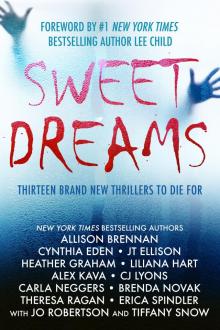 Sweet Dreams Boxed Set
Sweet Dreams Boxed Set A Family of Her Own
A Family of Her Own Stop Me
Stop Me Inside
Inside The Heart of Christmas
The Heart of Christmas In Seconds b-2
In Seconds b-2 Through the Smoke
Through the Smoke The Other Woman
The Other Woman We Saw Mommy Kissing Santa Claus
We Saw Mommy Kissing Santa Claus 05 Take Me Home for Christmas
05 Take Me Home for Christmas Killer Heat
Killer Heat This Heart of Mine
This Heart of Mine Until You Loved Me--A Novel
Until You Loved Me--A Novel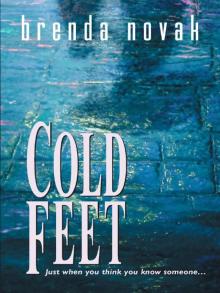 Cold Feet
Cold Feet Snow Baby
Snow Baby Dead Giveaway
Dead Giveaway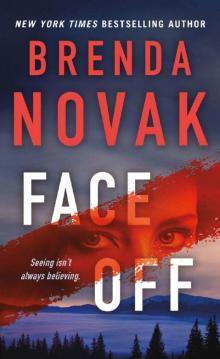 Face Off (Dr. Evelyn Talbot Novels)
Face Off (Dr. Evelyn Talbot Novels) Just Like the Ones We Used to Know
Just Like the Ones We Used to Know A Baby of Her Own
A Baby of Her Own Take Me Home for Christmas wc-5
Take Me Home for Christmas wc-5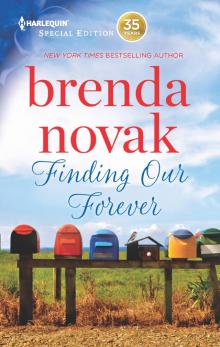 Finding Our Forever
Finding Our Forever Historical Romance Boxed Set
Historical Romance Boxed Set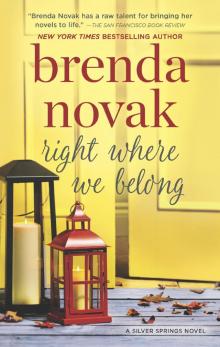 Right Where We Belong
Right Where We Belong Big Girls Don't Cry
Big Girls Don't Cry